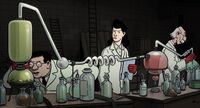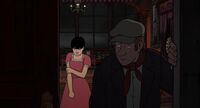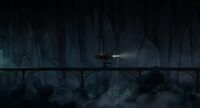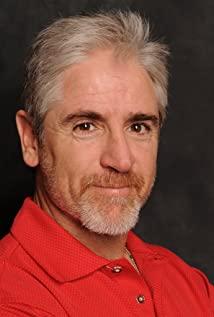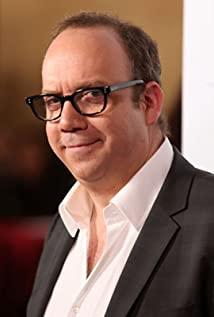The home of technology
Text/Li Haichuan (published in the September 2019 issue of China Environment)
In the long history of mankind, we cannot find any era where civilization has developed so rapidly as it is today. Various revolutionary new technologies continue to emerge, creating a world that is changing day by day. However, the duality of science and technology has also become more and more apparent. As people's living standards have improved, a large number of environmental problems have followed one after another. A few years ago, seeing the blue sky in Beijing was a luxury. At that time, I was thinking, what would the world be like if technology had not developed to this point, without airplanes, electricity and oil? I seem to find the answer from the French animated film "Avigil and the Fictional World".
The story takes place on the eve of the Franco-Prussian War in 1870. Napoleon III secretly met with the chemist Gustav Franklin. He hoped to use the serum developed by Franklin to give his soldiers invulnerable "golden bodies" and defeat the Prussian army. Franklin's serum failed to achieve this goal, but accidentally created two talking lizards. Such earth-shattering scientific discoveries were regarded by Napoleon III as nothing. Only the technology that could help him defeat the enemy was what he cared about, so he ordered the destruction of Franklin's laboratory. Such a thrilling scene allows us to see how dark and terrifying the world will be if the power of science and technology is used for war and dominance, and loses its original beautiful motivation to explore the world.
In this fictional world, the best scientists such as Einstein and Hertz have mysteriously disappeared, leading to the second industrial revolution not taking place, dozens of influential inventions such as radio, television, and airplanes have not appeared, and the technology is completely complete. It was in a state of stagnation, so that in 1931, when Avil's story began, the world was still in the steam age. People lacked "awareness of oil and atoms", so they first exploited coal resources frantically, waited until all the mines were exhausted, and then switched to burning charcoal. In this way, the world once again fell into a war-torn situation, but it was because of the struggle for a new one. The precious resource-forest. The film uses dark colors and fine lines to outline a "steampunk" style background. In that Paris, where two Eiffel Towers are connected together, in a weird city full of machinery, people are hurrying because the air is full of toxic substances emitted by chimneys. The little boy begging on the roadside sang loudly for a few coins, not hesitating to breathe in more polluted air, sacrificing his health in exchange for survival, this scene is frightening.
This is a world where technology is stagnant. It has no vitality and is destined to perish. The primitive “slash and burn” of mankind, the organic matter left behind after a forest burns can sustain crops for several years, but when the land becomes barren, people will leave here and burn another forest. The coal will burn out one day, and the forest will burn out one day. There is no resource in this vast land that is inexhaustible and inexhaustible. This is why we continue to explore and develop. Technology, to find a new way out. Look at it this way, whether it is 1870 or today, the wheels of technology are destined to roll forward.
But moving forward is not without direction or desperate.
The descendant of Gustav Franklin and the grandfather of Avil, Prosper Franklin, continue to develop the "ultimate serum" mission. He would often go to the museum and pet an oak tree-it was one of the only three oak trees left in the world. He told his son Paul countless times. Whenever he touched an oak tree, he seemed to see the vast forests on the earth. As a responsible scientist, Prosper Franklin has always cherished the earth and nature itself, and while exploring it, he hopes to keep it alive. But often things backfired. Those rulers used the remaining force to search for scientists conducting secret research, imprisoned them, and used their science to create more destructive weapons. They used technology and war to push the fictional world. To the bottomless abyss. I think that when Prosper Franklin stroked the oak tree, he must have thought of his own destiny and the destiny of the entire human civilization. What kind of emotions it was!
Avigil's parents are both scientists. During an imperial police hunt, she lost contact with her parents and grandfather. Only the crystal ball her mother gave to her and Darwin, a pet cat immortalized by serum. She made a home like a nest in the huge statue of Napoleon, reading stolen chemistry books every night, and experimenting with stolen reagents. What is unexpected is that Einstein and the missing scientists were actually captured by Rodriguez and Simena-they are the two talking lizards that Franklin once created. As time passed, they grew into two monitor lizards and a bunch of small lizards. After escaping from the laboratory, they created their own "utopia" in the underground of Paris. The outside world has been deserted, and trees have become rare species. What makes them still have a green forest here? Technology. Here, science and technology have been highly developed. They use radios, remote controls, lasers, etc., to monitor the earth, holding all outstanding scientists here, and step by step to lure Avil here-because she unintentionally developed The "ultimate serum" that allows people to gain immortality. Just when we thought the lizards would brew some earth-shattering evil plan, Ximena showed everyone a rocket covered in vines like a giant tree. Her plan was to sprinkle the ultimate serum on the vines and let the rocket carry the jungle. Spores-these spores, which can resist explosions and vacuums due to serum, fly to distant outer space and allow life to multiply... I think the meaning and value of technology is nothing more than this: let life find infinite and vast space.
Now, in the face of shrinking islands and an increasingly desolate land, what can we do? Let the factory chimneys go out, let science and technology return to farming civilization, or even drive mankind back to the cave? This is absolutely impossible, the wheels of technology will only roll forward. Its power is enough to lead us to a completely different world, and the gap in it may be greater than the "utopia" of lizards in the film and the Paris of humans in the distant future. A small deviation may cause irreversible consequences as history develops. The fictional world in the film is the best example. For example, if one day human beings master a method that can release a huge amount of energy instantaneously, which is far more powerful than a nuclear bomb, then it can be used as a weapon. The consequence is that the earth will be razed to the ground in a war. Of course, it can also be used to boost rockets so that humans can reach their homes in the distant future more quickly. What we have to do is not to linger and turn around, but to find a goal and a final destination for technology.
The development of science and technology is like a rushing river. The environmental problems we are facing today, such as global warming, greenhouse effect, and land desertification, are one stone after another in this long river. But the river will eventually rush forward, breaking through all obstacles, taking us to a vibrant utopia, and then sending life to countless distant planets, letting the light of life illuminate the dark universe.
At the end of the film, when the human spacecraft finally rises into space, it is found that Mars, Venus and the moon have all turned green. The talking Darwin cat is happily running on the moon. Perhaps life, just like this, has unlimited possibilities in a vast space.
View more about April and the Extraordinary World reviews




